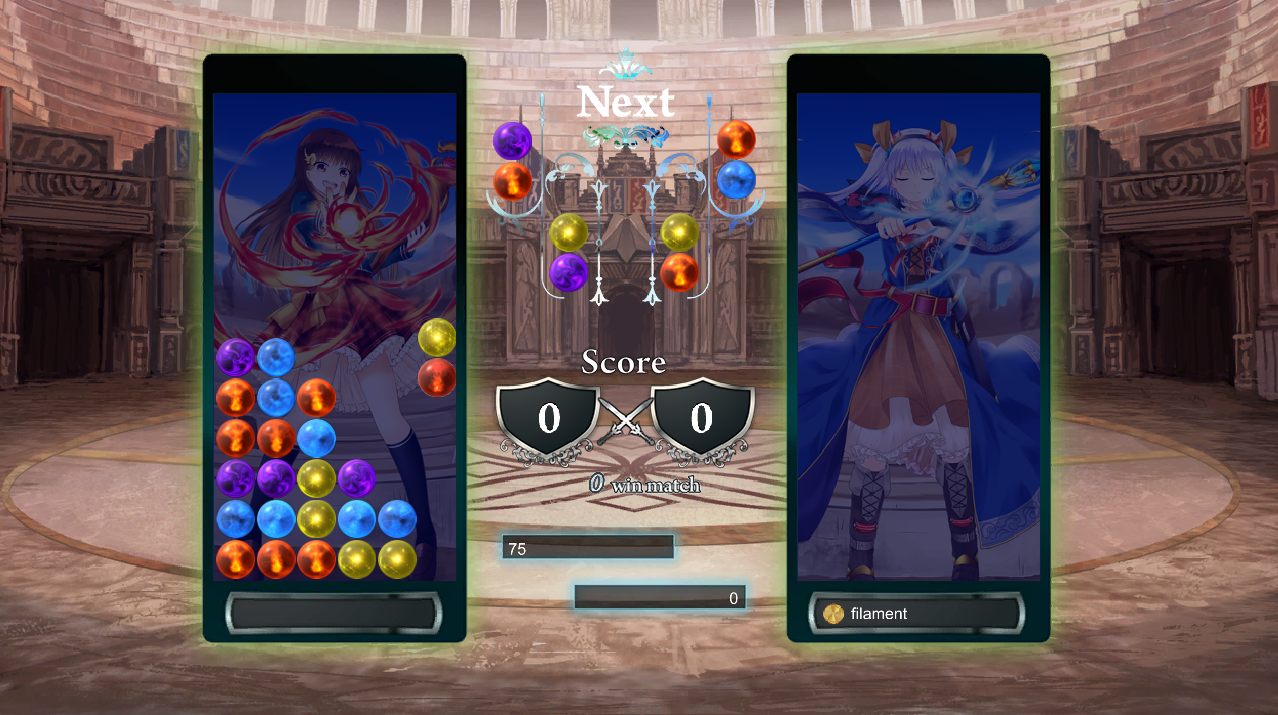The world of competitive gaming has existed for ages, yet it’s only recently that it’s become big business globally under the nebulous banner of “eSports.” eSports is very quickly turning into a huge moneymaker, but it’s also a field that’s going through some serious growing pains: bad contracts for players, shady team managers and sponsors, cheating and rigged game scandals… basically, all of the problems that plague more physical sports, but with additional internet drama attached due to the online-connected nature of many of these titles (and the online presence of the players and companies).
But what happens when the game itself is the subject of scrutiny?
Japan doesn’t have quite the reputation for being an eSports hub as other Asian countries do, but the field is definitely growing: numerous local teams have been formed, an eSports square has opened in Akihabara, League of Legends has been making a Japanese push, Daigo Umehara is a bestselling author… and that’s just a handful of examples. Longtime competitive gamers are seeing a lucrative market, which has some of them are saying “Hey, why can’t my competitive game be eSports, too?”
Such is the case of competitive Puyo Puyo. Much like the Smash Bros. series, Puyo has gone through numerous iterations, but a subset of the most die-hard players swear by one particular installment: Puyo Puyo Tsu, the second game in the series. Among other things, Tsu introduced the “offset” rule that allows players to counter each others’ garbage drops by assembling combos of their own. Versus matches of high-level Puyo Tsu are mesmerizing to watch as a result:
Sega, however, is more keen on promoting their current version of Puyo than Tsu, leaving competitive players feeling a bit left out – there’s not really a good way to play Puyo Tsu online, much less any sort of streamlining to aid competitive play. That’s where Magical Stone comes in. Basically, it’s a puzzle game that’s ~heavily inspired~ by Puyo Tsu, only with a few additions to make the game more eSports-friendly. In fact, there’s already an eSports team for the game with a few top Puyo players onboard!
…Or, there was, anyway. See, things got… complicated. Friend of the site Gosokkyu alerted me to ongoing drama surrounding Magical Stone via Twitter, and having a passing interest in the Japanese competitive puzzle game scene, I wanted to dig into things a bit more. So, I invited him here to share his knowledge of just what went down with this game — while the controversies have garnered some press on the Japanese side of things, Western eSports coverage completely overlooked Magical Stone. And that’s a shame, because this is an example of what can go wrong when you try and elevate your game to the big leagues — and both players and developers could stand to learn from it.
So anyway, where do we even begin to get into the Magical Stone situation? It all seemed to explode so fast.
GSK: Magical Stone’s troubles began from the moment it was announced, pretty much.
The game was revealed on a live broadcast from a competitive Puyo event and the developers GameFactory, led by a former Puyo community organizer and one-time player, reso, were very matter-of-fact about their motivations: they wanted a legal way for pro players to play Puyo Tsu online, they wanted a platform they could monetize in order to foster and subsidize a full-time eSports circuit, and when they couldn’t get an official license from Sega, they surmised they could make a mechanical duplicate with original characters because Puyo’s mechanics were not protected by copyright.
A promo video for Magical Stone. I know it was in beta, but jeez, did this game ever cheap out in the looks department…
Of course, clones and derivative games are nothing new, especially in the incestuous genre of falling-block puzzle games, but Magical Stone was extremely brazen in both content and intent; GameFactory announced Magical Stone with no pretense about what it was and who it was for, and made no effort to establish even the faintest veneer of originality, which struck many people as tactless or unethical.
Additionally, reso made some comments that implied a tacit understanding from Sega, which have not been publicly substantiated by Sega and are regarded by most as, at best, extremely optimistic.
 Reso, the apparent source of most of the controversy
Reso, the apparent source of most of the controversy
This “tacit understanding from Sega” is one of those things that seems comically inept. Puyo’s still making some pretty huge bank for Sega, even though it’s not in the most “competitive” form certain players like, and I sincerely doubt they’d be 100% cool with a clone game being released while they still have the rights.
But from what I understand, there were several other big name Puyo personalities on board here, as well.
GSK: Indeed! Earlier in the year, six well-known Puyo players – ALF, Kumachom, Kamestry, momoken,1 selva, and Youkan – formed a professional team named Samurai Frontier Gaming (SFG) in order to attract sponsors and establish a regular circuit of events and streams, and from the moment they launched they already had several high-profile sponsors and an affiliation with the multi-genre eSports portal eSports-Runner (eSR).
Magical Stone was revealed during an eSR event with SFG players and SFG immediately announced their intention to focus on Magical Stone as their primary venture, so there was an established relationship between MS, SFG and eSR from the get-go, to that extent that GameFactory pledged a commitment to donating a certain percentage of the profits from Magical Stone to funding future events.
Though, from my understanding, the various firms were actually a lot more closely connected – as in, they were all owned by the same parent company. Is that correct?
GSK: Not exactly, but pretty close: reso, the owner and representative of Magical Stone developer GameFactory, was at one point the representative director of FanGames, the parent company of eSR and major sponsor/manager of SFG.
The Puyo scene is small and most of the major personalities have associations that go way back, so some degree of familiarity between players, promoters and developers is inevitable, but the closeness of their relationship was definitely cause for concern, even before reso’s extracurricular business were brought into question…
And that extracurricular business, as it turns out, is RMT (real money trading) for various MMOs and mobile games. Once that came to light, shit really started to hit the fan.
It’s funny, though. From my observations, the RMT business in Japan is like pornography: Everyone hates it and will disparage it publicly, but a whole lotta people make use of it privately, to the point where certain games are actively being wrecked by it.
GSK: Yep, and when reso was confronted about his RMT business he defended his position with a similar argument: “the people who use RMT aren’t objectively bad so selling RMT isn’t an objectively bad business, and it’s not strictly illegal, either…”
Unfortunately for him, people weren’t looking to argue the ethics of virtual gold farming–they wanted a contrite apology and they got more semantics, which only made matters worse.
He did eventually offer something of an apology that included a pledge to begin withdrawing from the RMT business starting with Dragon Quest X, but by that point scrutiny had already spread to the players and even external sponsors.
Were the other players involved in this trade, too? Or were they mostly unaware? I can see this being the sort of thing that might split an eSports team apart if some of the members really were left in the dark.
GSK: That’s exactly what ended up happening: every member of Samurai Frontier Gaming was forced to publicly apologize for their association with Magical Stone and acknowledge that their behavior was unethical; the team disbanded soon after, citing the damage they’d done to their own reputations as well as the reputations of their sponsors and their scene.
The degree of culpability varies between individuals–some claim they knew the game was being financed by RMT and rationalized it as a means to an end, some say they suspected something but chose not to investigate, while some claim they had no idea, which isn’t implausible but seems difficult to believe given the closeness of those involved and the fact that reso’s conduct was not private or hard to verify.
Regardless, there’s a broader question that has yet to be addressed: why did these players align themselves so directly with a game they intended to play professionally? How could they not see that being on the payroll of the developers and competing against other people in a game they’d worked on as testers was not a huge conflict of interest?
Yeah, that’s a really good point. Capcom doesn’t sponsor their own competitive Street Fighter team, and many of the “big name” players they’ve recruited onto staff are barred from competing in official tournaments. It’s not uncommon for developers to consult with pro players for feedback during development, but bankrolling their own team to directly compete with the rank-and-file is like… wha?
So is Magical Stone still actually happening at this point? I noticed it turned up on Steam Greenlight very briefly, only to vanish within a day.
GSK: In a word, no. The Greenlight page was pulled in the wake of universally negative feedback by Japanese users, the official Magical Stone tournament scheduled for June has been cancelled and the beta was put on indefinite hiatus on April 25 while the devs “resolve various problems”. All in all, they went from announcement to dramatic implosion in the space of about a month.
RIP Magical Stone beta, all we have are Youtube commentaries
What’s more disappointing is that the Magical Stone fallout has affected the established Puyo scene–many of the former members of SFG immediately declared a hiatus from professional Puyo play, causing the cancellation of at least one exhibition match and putting future Puyo events in jeopardy. As of this writing, Kamestry and Kumachom have resumed public Puyo play but momoken, ALF, Youkan, and selva have yet to re-emerge and have mostly withdrawn from social media.
Yikes, yeah. That’s a big mess right there. What I’m worried about is if this might kill the competitive puzzle game scene as a whole. It’s not a good look. Has Sega weighed in at all on this?
GSK: Not really, no–they were asked to corroborate reso’s account of their interactions, they gave a boilerplate non-response and that was it. I suspect they may have been weighing up their options privately but the game fell apart so quickly and so dramatically that we may never know how they planned to respond.
It’s worth mentioning that Magical Stone received a far warmer reception from the western Puyo community: they generally didn’t care that it was a blatant clone and they were indifferent to how it was being financed, they were just happy that someone was making the effort to give them something Sega has denied them for over a decade.
Well, we’ve got Puyo Tsu on Sega 3D Classics now. Then again, that doesn’t have online play at all, and I think the online aspect is what was the most appealing element of Magical Stone. So I guess the question is “will competitive puzzle games ever go eSports at this rate?”
GSK: Aside from mobage and the juggernaut that is YoCo, probably not. There’s demand for it, certainly, but until the likes of Sonic Team or The Tetris Company decide to proactively invest in or an endorse a bona fide competitive circuit, one would have to think the opportunities for expansion are limited.
That’s not to say developers and publishers aren’t aware of the potential audience for these games–Tetris: The Grand Masters developers Arika recently began to re-engage with the western TGM scene after years of ambivalence when they saw the reaction to the TGM exhibitions at events like ADGQ, for example–but there’s simply not a lot that can be done to elevate the scene beyond the grassroots level without the cooperation of the rights holders.
For better or for worse, GameFactory was trying to find a solution that would allow players to play their game with their preferred ruleset without having to bend to the whims of Sega, but they made too many blunders too early and completely destroyed any chance of legitimacy for Magical Stone.
Indeed, it’s a strange and tragic story, through and through. Here’s hoping that Magical Stone’s short, brief life sets an example for others of what not to do when trying to elevate a game to professional play.
- As a side note, momoken was involved with one of the most amazing livestream event trolls I have ever seen ↩



You’ve pretty much nailed the subject. Great article.
If you wanna laugh, you should check Bazoo. A mobile game that completely rips off Baku Baku Animal and pretends to be a “Puzzle eSport”.